Has America Become Immigrant Nation?
There are more than 11 million illegal aliens in the U.S. But could you spot one in a crowd? They're not always who you think they are
As you read this story, more than 11 million undocumented immigrants are living in your country. Another 400,000 are expected to arrive by next year. Yet despite their large numbers, you may never have seen an illegal immigrant-- or if you have, you don't know it. Afraid of being found out and deported, they often work while you are sleeping. They live on the other side of town. They don't go to the doctor when they're sick or to the police if they're victims of crime. Smugglers prey on their vulnerability; employers often abuse them with impunity. Many pay taxes but will never collect government benefits because of their illegal status. Still, they come. Some come to work in jobs Americans don't want. Others are captured by the country's spirit, letting a vacation lapse into a permanent stay. All are looking for something they didn't have at home: hope. Two major immigration reforms, in 1986 and 1996, couldn't slow their steady flow across America's borders: The number of undocumented has doubled since the early 1990s. But the reforms have made coming here more dangerous: New fences and more agents along the U.S.-Mexico border force immigrants to cross in increasingly remote areas. Since '96, more than 3000 people have died in the desert. This past year, while thousands of undocumented immigrants and their supporters held protests to bolster their demands for reform, Congress introduced two new bills in the latest attempt to fix the system. The Senate bill would introduce a guest-worker program and a path to citizenship for law-abiding immigrants; the House bill focuses on penalizing the undocumented by making it a felony to be here illegally. Both bills propose more fences and an even bigger border patrol. What these bills don't do is diminish the mix of desperation and ambition that brings people here in the first place. Officially, they are called "illegal aliens," but their dreams may not be too different from your own.
"I was on my way to becoming a doctor. Now, everything's up in the air."
AMEERA, 20, FROM BANGLADESH
Ever since I can remember, I have dreamed of becoming a doctor. My family is from Bangladesh originally, but I grew up in Saudi Arabia in a community of immigrant doctors and engineers. School was my life. I went to class, came home, and did my homework. When my oldest brother got accepted to a college in the United States, everyone assumed I would be next—until he got sick. My brother was hospitalized for depression after falling out of a third floor window at his university. When my parents got the call, my mother told me to pack a bag--we were going to New York City to take care of him. My father stayed behind. I remember worrying: How could I miss several weeks of classes before my final exams? It wasn't until we got to America that I realized we weren't going back. The way my parents explained it, my brother would never get the same quality medical treatment outside of the U.S. He could lose his mind forever, but in New York, he had access to the world's best doctors. So we stayed. After my brother got sick, I wanted to be a doctor more than ever. I went to high school in Queens and graduated with honors, ranking sixth in my class of 577. I edited the high-school yearbook and volunteered as a math tutor. I won a statewide award from the attorney general. I could have won a scholarship to a prestigious college of my choice, but I wasn't able to apply because I didn't have any papers. Thankfully, I still got a scholarship from City University of New York Honors College—under New York state law, it admits resident undocumented students who show good high-school records. Without that, it would have been hard to go to college at all. I chose biochemistry as my major. I was in the premed program, with a GPA of over 3.5. Then I started to apply for internships at hospitals, a helpful resume addition when applying to medical schools. Recently, I received all rejection letters. Because I'm not legal, the hospitals wouldn't even look at my applications. I thought at least one program would have made an exception, given my grades. Five years ago, before 9/11, this would never have happened-- no one thought about immigrants as posing a safety threat then. So I'm beginning to accept that my career plans have to change. When I tell friends I'm not going to med school anymore, they're shocked. But I try not to think about it too much, because I have to face reality. I've thought about going home, but I don't know anybody in Bangladesh anymore, and the school system is completely different. I would have to start all over. And in Saudi Arabia, as a woman, it would be nearly impossible to get a job. So for now, I'm just trying to graduate from college. I don't even know if I'll be able to get a job afterward; I can't plan anything. I've come so far toward achieving my goal. But without papers—or a change in the system—I don't have a future.
"I paid for my mother's surgery and my sister's college education by working in America."
TERESA, 25, FROM MEXICO
I didn't know what the word "poverty" meant when I was a little girl—or that it described my life. I grew up in a village on the edge of Mexico City in a house without a toilet or a telephone. I remember making mayonnaise sandwiches for lunch because there was nothing else to eat. Every year, my four siblings and I alternated whose turn it was to get a new pair of shoes. If we wanted to go to school, we had to bring along concrete blocks to sit and write on, because there were no chairs or desks. When it rained, school was canceled because the building was made of tin, and it leaked. When I asked my parents for a notebook and pencils for my classes, they said we didn't have the money. My younger brothers and sisters complained, but I was the oldest, and I understood. At age 7, I got a job working as a maid in the city during my school vacations. The wealthy señoras paid me a dollar a day to wash dishes, mop floors, and do laundry. I was proud to help my family. I gave some of my wages to my mom; the rest I used to buy candy for my brothers and sisters. Eventually I dropped out of school, even though I loved it. I know I could have succeeded, but no money for textbooks meant I failed most of my classes. Then, at age 19, I got word from my childhood friend Carlos: He was in New York City, earning $200 a week. I said to him, "Wow, you're a millionaire!" He said he'd send for me. The day I left, my parents hugged me and said, "May it go well with you," and that was it. I didn't cry until I was on the bus, so they wouldn't see me. I thought, It's better to go to America with a smile than to bring your tears. That was more than five years ago, and I haven't seen my family since. I've been working at a factory ironing sweaters—$1 for every 12 sweaters. I make around $200 a week and live in an apartment with three other immigrants. Not long ago, my mom needed an operation, and my family begged me to come home. They told me that it might be the last time I would see her, but I refused to cross back into Mexico. I knew I could help her more if I stayed here, so I kept working and paid for her surgery. She survived. Now, thanks to the money I send home, one of my sisters is in college and my other siblings are in school, too. I miss them, but if I weren't in the U.S., they could never afford such education. I know people say we shouldn't be here, but we pay taxes. They say we're taking work from those who are born here, but the work I do, others don't want. I think about going back, but I can't. My family needs me here.
Stay In The Know
Get exclusive access to fashion and beauty trends, hot-off-the-press celebrity news, and more.
"I'm putting 110 percent into the immigrationreform movement, because if it fails, I fail."
SAMANTHA, 31, FROM IRELAND
People don't look at me and think, There's an illegal alien—but that's what I am, even though I'm white, I speak English, and I'm working on a master's degree in psychology. Growing up, I had what we in Ireland call "itchy feet." I always wanted to travel and search for something better. But you can't tell my story without telling the whole history of Ireland: After the mass migration during the potato famine, it became almost a rite of passage for young Irish people to come to the U.S. When I was 11 years old, a teacher asked my class what we dreamed for our futures. I raised my hand and said, "I want to change the world," and then I added, "and I want to go to America." After I graduated from college in '97, I came to New York to visit for a couple of months. I found a job bartending and made some good friends. Months quickly turned into years. I moved back to Ireland for a while, but I was miserable. There was nothing for me there, so I returned to the U.S. If someone had told me then that in 2006 I would still be undocumented and working as a bartender, I'd have said, "Are you crazy?" And yet, here I am. For five years, I waited and hoped. I was sure that any day, Congress would pass a law allowing immigrants with steady jobs to stay here. In the meantime, I got married (to an undocumented Irishman), went back to school, and tried to live life as normally as possible. But I can't travel home to see my family. I miss funerals and weddings, and I can't move ahead with my career because I have to take jobs that pay in cash. I haven't had children, because what if I'm deported? My kids could stay—they'd be U.S. citizens—but I'd have to leave. It's like somebody pressed pause on my life plans. From the outside, it probably sounds crazy that anyone would want to live like this, but when you're on the inside, you just get on with it. You're always thinking, I'm going to get the visa, I can't live like this forever, something is definitely going to happen. Then I realized nothing would happen if I didn't get involved. I joined the Irish Lobby for Immigration Reform and began speaking out at marches and meeting with members of Congress. The goal of the group is comprehensive reform, not just for Irish people, but for every immigrant group in America. I turned 31 in July, and there are so many things I want to do in life—set up my own counseling program, start a family—but I can't do them without a visa. So I'm focused on getting Congress to pass this bill. Without it, I lose everything I've dreamed about.
WHAT YOU CAN DO
For more about immigration-reform issues, visit the National Immigration Forum (www.immigrationforum.org). Ask your senators to support the DREAM Act, which would allow immigrant students who have grown up in the U.S. to apply for legal status. Visit www.congress.org to contact your senators.
TOP 10 COUNTRIES WITH ILLEGAL IMMIGRANTS COMING TO THE U.S.
1. MEXICO
-Total Mexican immigrants in the U.S.: 9.2 million.
-Number unauthorized: 5.9 million
-The majority of immigrants (legal and illegal) live in California, Texas, Illinois, and Arizona, but the fastest growing population is in the South.
2. CHINA
-Total Chinese immigrants in the U.S.: 1.5 million
-Number unauthorized: 500,000
-South Carolina and Arkansas nearly tripled their Chinese-immigrant populations between 1990 and 2000.
3. PHILIPPINES
-Total Filipino immigrants in the U.S.: 1.4 million
-Number unauthorized: 85,000
-One fourth of all foreign-born in the U.S. armed forces were born in the Philippines.
4. EL SALVADOR
-Total Salvadoran immigrants in the U.S.: 817,000
-Number unauthorized: 300,000
-Narciso Ramirez, who had no governing experience, recently became mayor of a small town in El Salvador based on his reputation for helping people sneak into the U.S.
5. DOMINICAN REPUBLIC
-Total Dominican immigrants in the U.S.: 688,000
-Number unauthorized: 91,000
-The Dominican Republic is the largest exporter of legal immigrants to New York City. Dominicans represent 10 percent of the 1.1 million students in the New York City public school system.
6. COLOMBIA
-Total Colombian immigrants in the U.S.: 510,000
-Number unauthorized: 141,000
-Every year, Colombia's ongoing conflict drives more than half a million of its citizens from their homes. Over the past five years, 1.2 million Colombians have fled their country.
7. GUATEMALA
-Total Guatemalan immigrants in the U.S.: 481,000
-Number unauthorized: 144,000
-In Arizona, Guatemalans now make up the majority of roofers, a dangerous occupation previously dominated by Mexicans.
8. ECUADOR
-Total Ecuadorian immigrants in the U.S.: 299,000
-Number unauthorized: 108,000
-Transparency International ranked Ecuador as the 20th most corrupt country out of 133. More than 60 percent of the population lives in poverty and only 40 percent has access to safe drinking water.
9. HONDURAS
-Total Honduran immigrants in the U.S.: 283,000
-Number unauthorized: 138,000
-In June 2006, the U.S. halted the issue of all new visas to Hondurans. The U.S. claims that third party countries, particularly Cubans, easily obtain visas from Honduras for travel to the U.S.
10. BRAZIL
-Total Brazilian immigrants in the U.S.: 212,000
-Number unauthorized: 77,000
-After centuries of taking in immigrants from other continents, Brazil's poor economy and high unemployment turned it into a country of net emigration in the 1980s. Today, around 2 percent of the national population are living abroad, and the United States is the biggest magnet.
-
 Your Syllabus Guide to the 'Weak Hero Class 2' Cast—Meet the Rising K-Drama Stars Playing the Students of Eunjang High
Your Syllabus Guide to the 'Weak Hero Class 2' Cast—Meet the Rising K-Drama Stars Playing the Students of Eunjang HighSo many exciting names join Park Ji-hoon in the second season of the Netflix hit.
By Quinci LeGardye
-
 Prince William and Kate Middleton "Continue to Push Boundaries"
Prince William and Kate Middleton "Continue to Push Boundaries""They definitely have a different dynamic compared to other royal couples."
By Kristin Contino
-
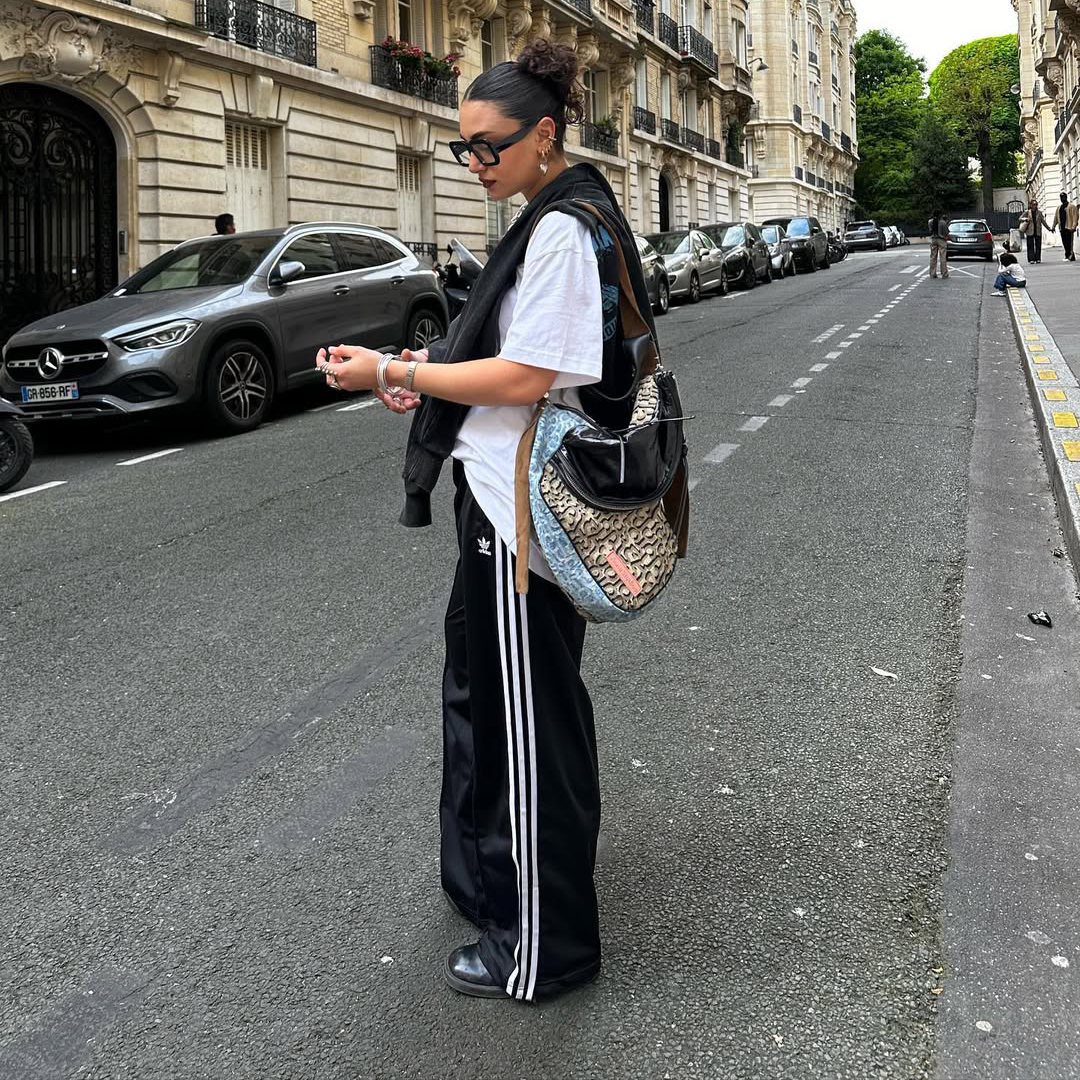 I'm Done Gatekeeping: Adidas' Activewear Is Just as Cool as Its Shoe Selection
I'm Done Gatekeeping: Adidas' Activewear Is Just as Cool as Its Shoe SelectionUp in the gym just working on my fitness.
By Kaitlin Clapinski
-
 36 Ways Women Still Aren't Equal to Men
36 Ways Women Still Aren't Equal to MenFeatures It's just one of the many ways women still aren't equal to men.
By Brooke Knappenberger
-
 This Bill Wants to Stop Anti-Abortion Groups From Getting Your Private Data. Period
This Bill Wants to Stop Anti-Abortion Groups From Getting Your Private Data. PeriodPost-Roe period tracking apps and search history suddenly have serious implications.
By Emily Tisch Sussman
-
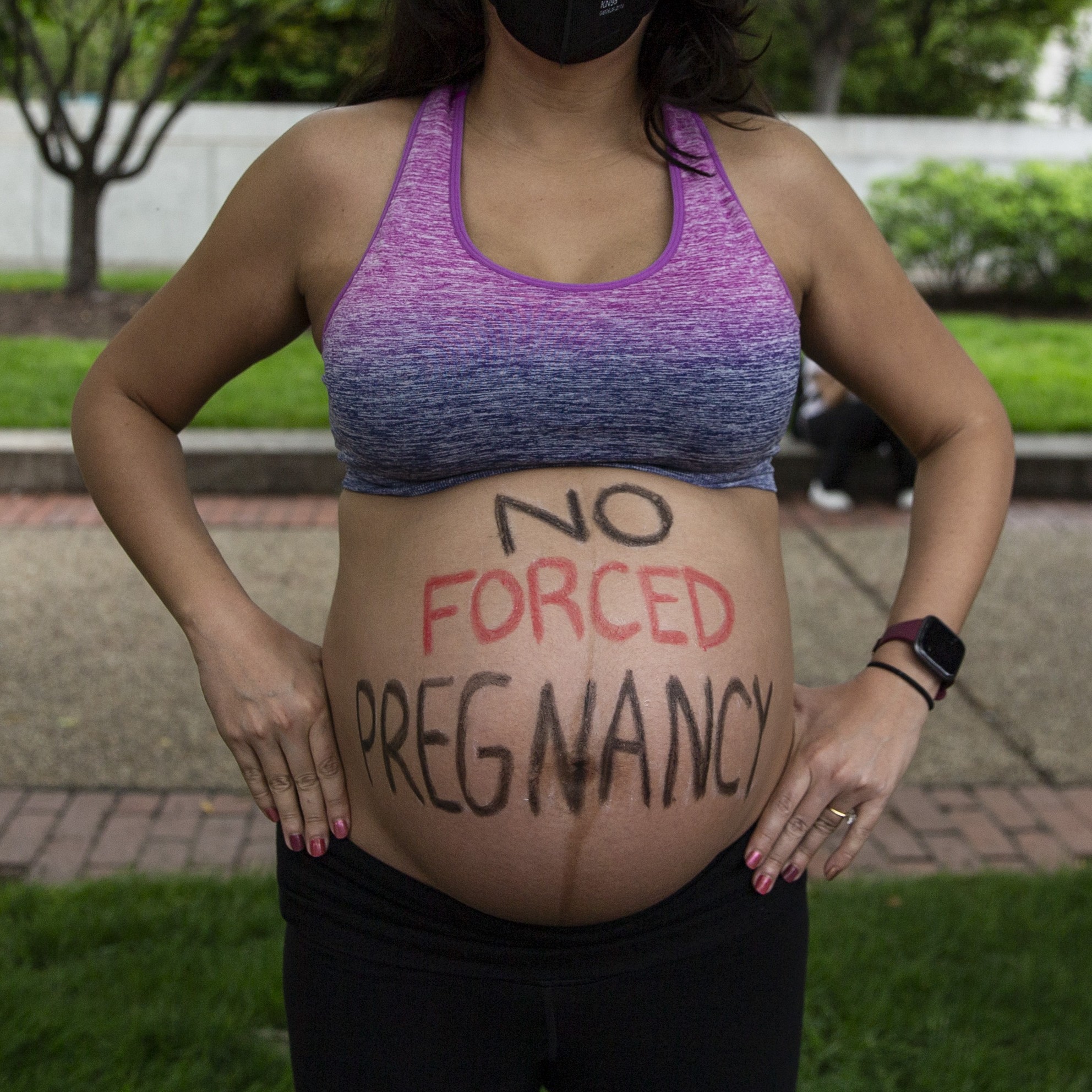 Post-Roe, Pregnant People Will Become Suspects
Post-Roe, Pregnant People Will Become Suspects\201cWe anticipate a very dramatic increase in the rate of criminalization of all pregnancy outcomes.\201d
By Lorena O'Neil
-
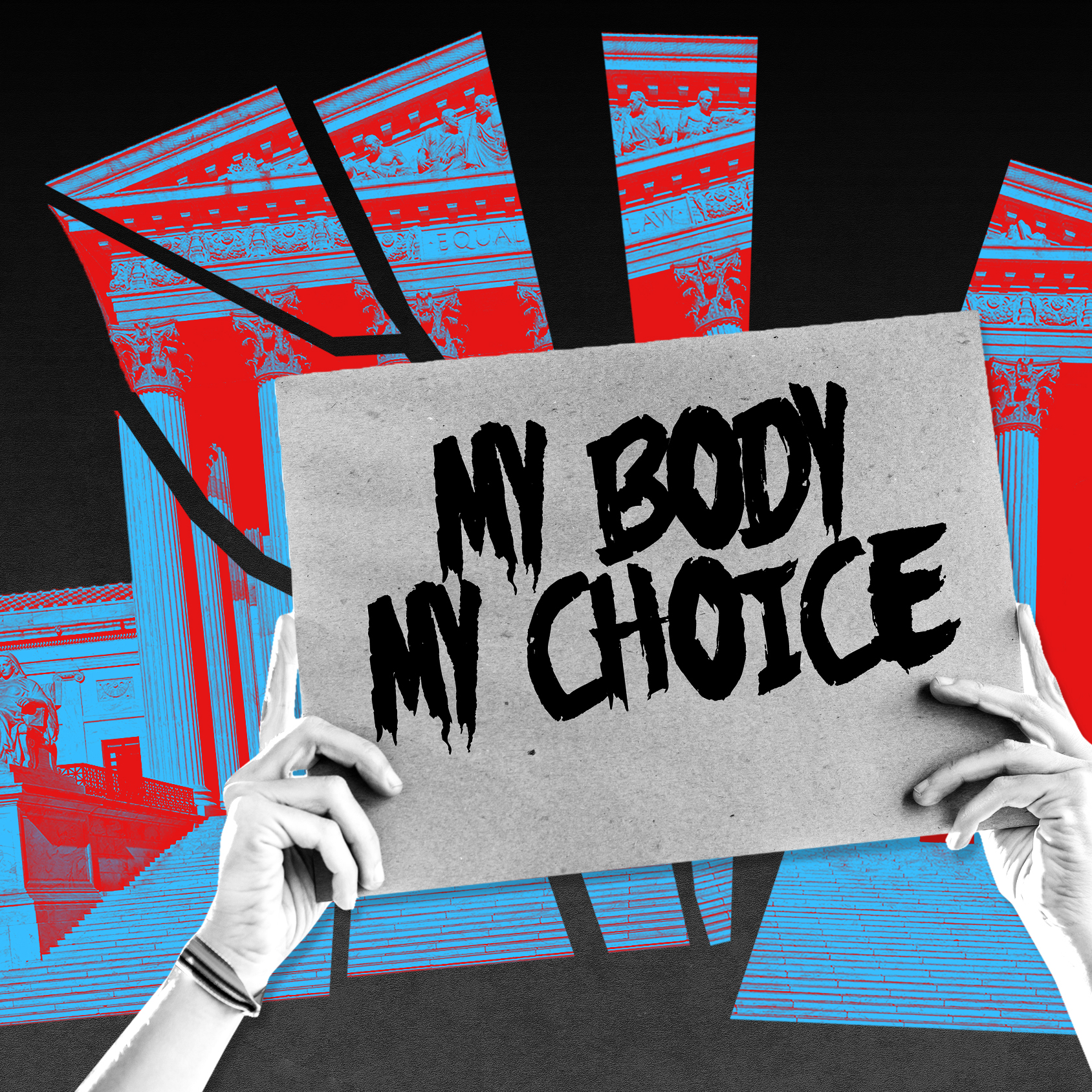 14 Abortion Rights Organizations Accepting Donations to Support Their Fight
14 Abortion Rights Organizations Accepting Donations to Support Their FightFeatures 'Roe' is no longer the law of the land, but these organizations won't stop fighting.
By Gabrielle Ulubay
-
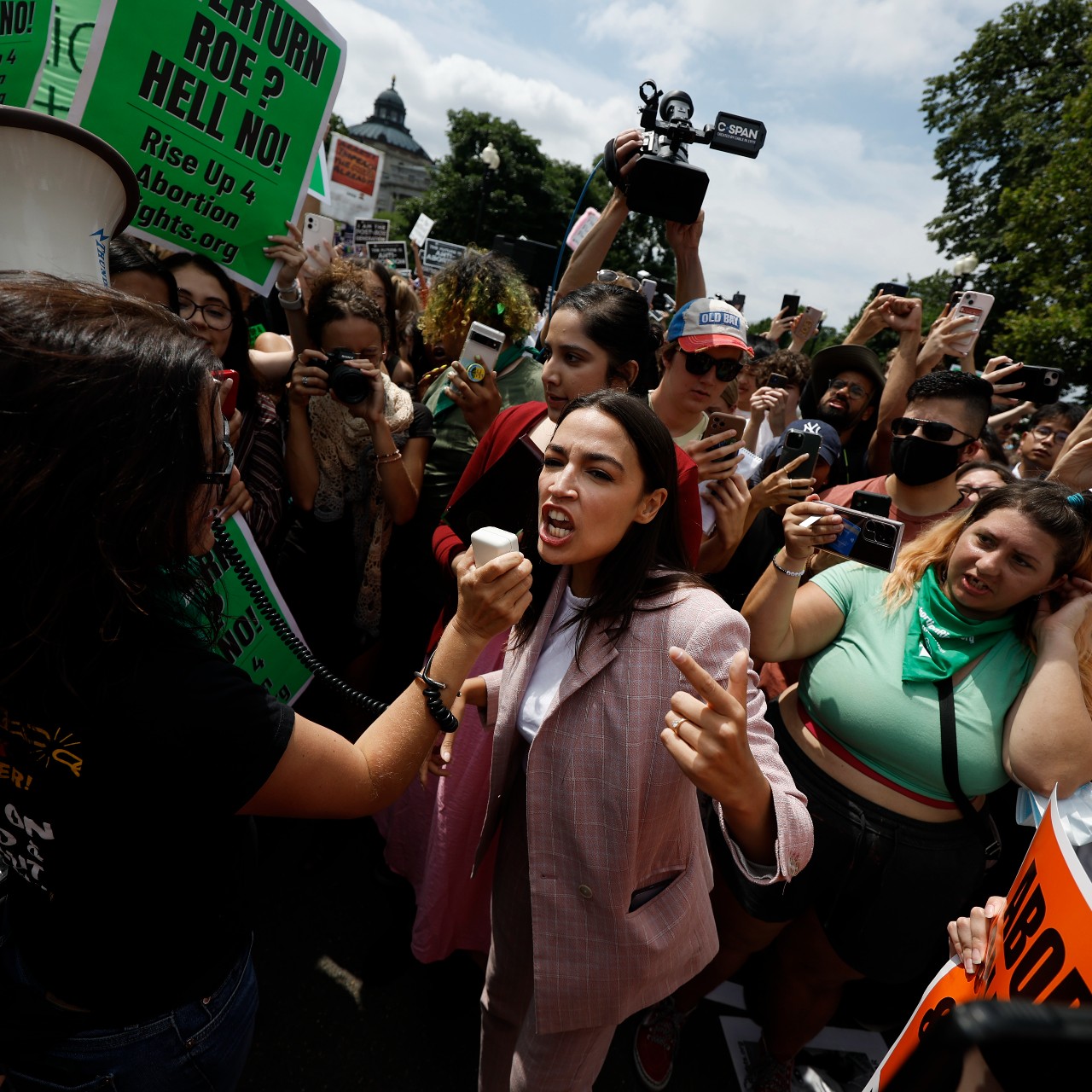 Lawmakers, Activists, and Allies Are Reacting With Fury to 'Roe' Being Overturned
Lawmakers, Activists, and Allies Are Reacting With Fury to 'Roe' Being OverturnedThousands are taking to Twitter to express their grief and anger.
By Tanya Benedicto Klich
-
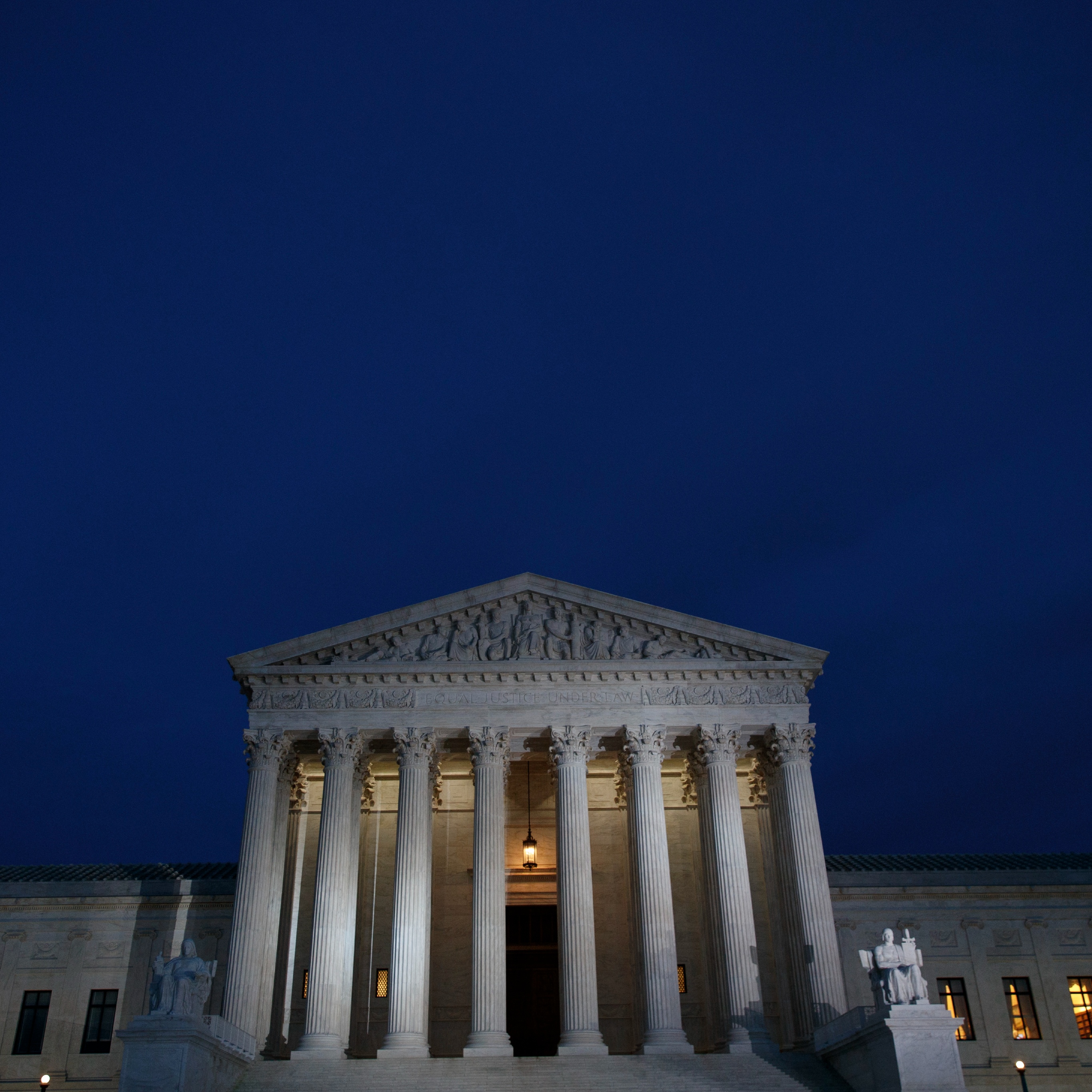 Justice Clarence Thomas: LGBTQ+ Rights and Contraception Are Next
Justice Clarence Thomas: LGBTQ+ Rights and Contraception Are Next"We should reconsider all of the Court's substantive due process precedents..."
By Jenny Hollander
-
 Roe Is Gone. We Have to Keep Fighting.
Roe Is Gone. We Have to Keep Fighting.How To Democracy always offers a path forward even when we feel thrust into the past.
By Beth Silvers and Sarah Stewart Holland, hosts of Pantsuit Politics Podcast
-
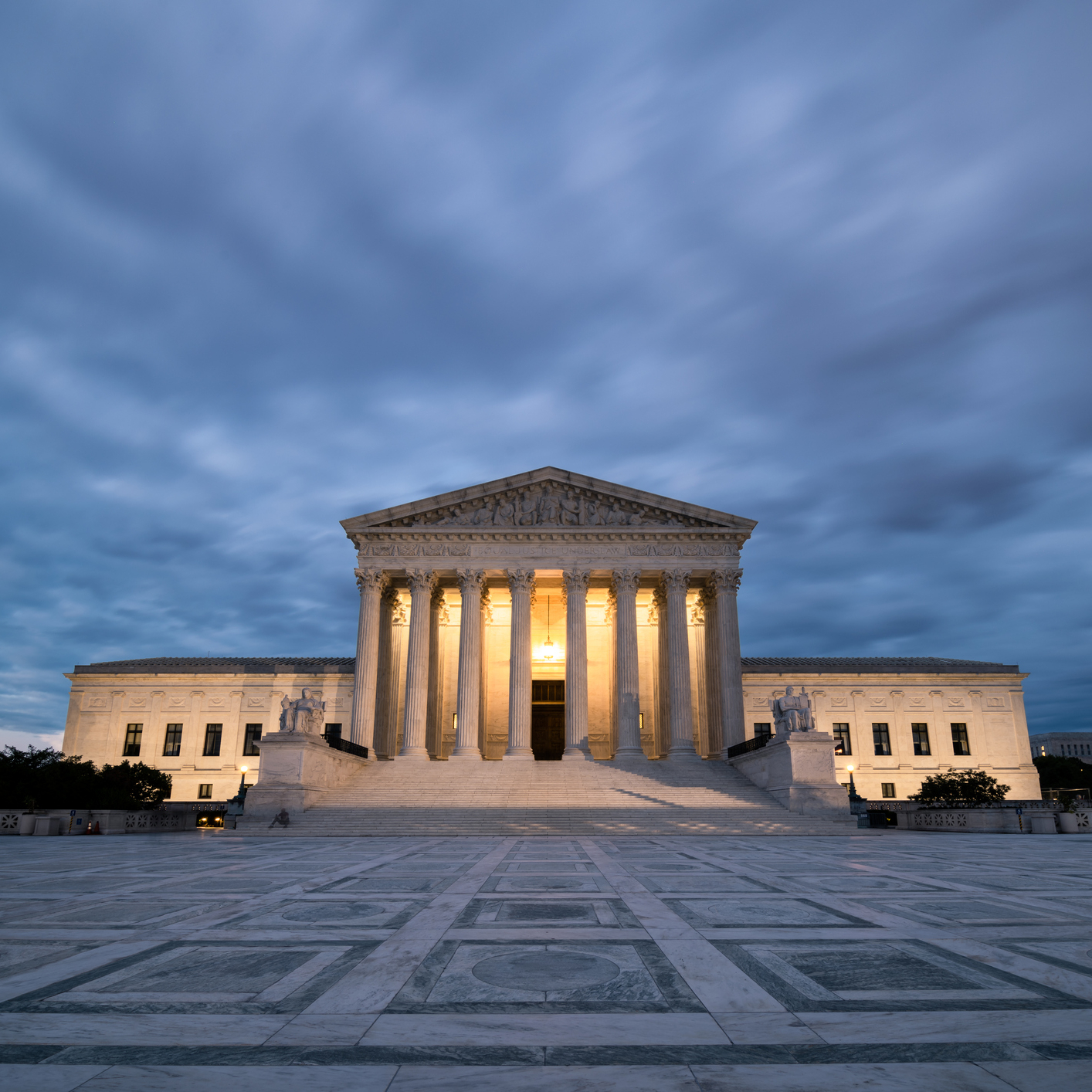 The Supreme Court Has Struck Down Roe v. Wade
The Supreme Court Has Struck Down Roe v. WadeRoughly half of U.S. states have indicated they will now ban abortion.
By Jenny Hollander